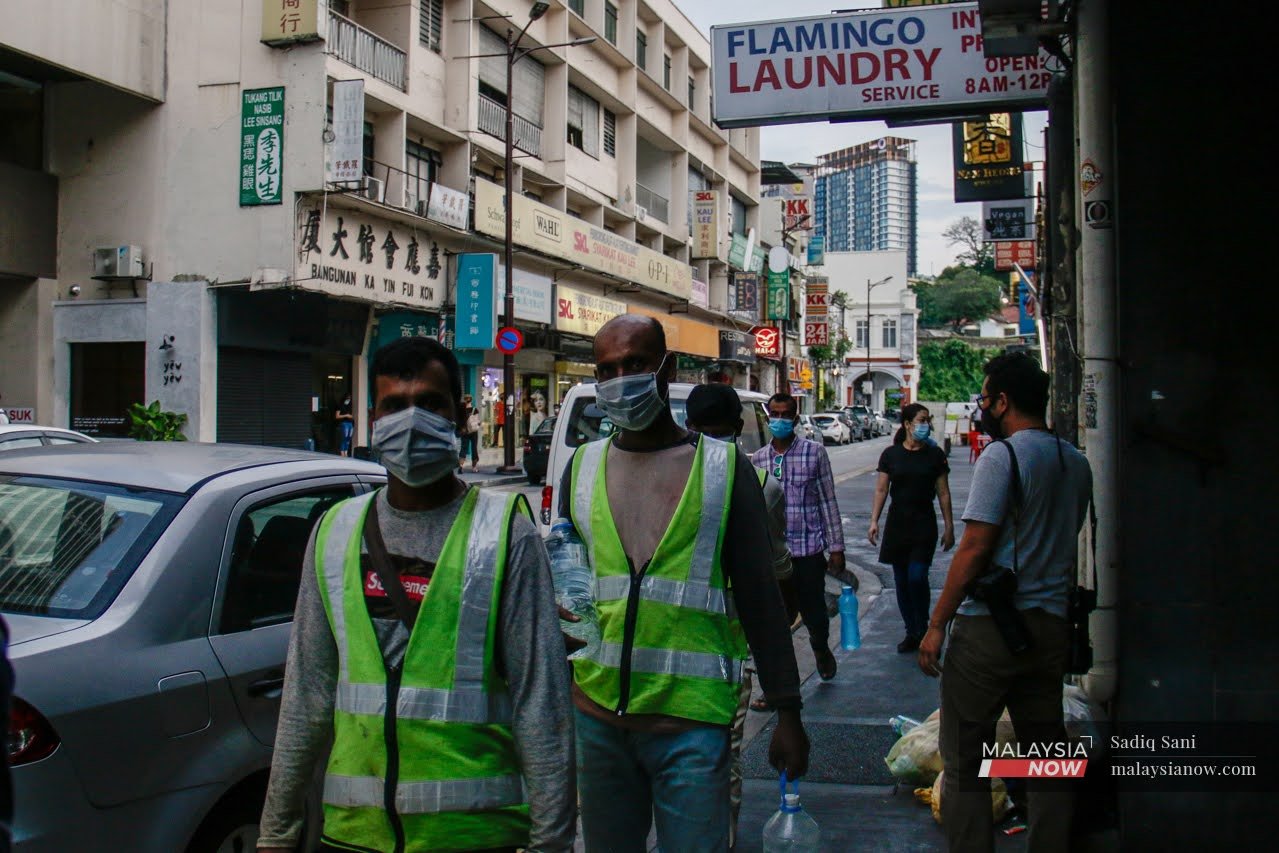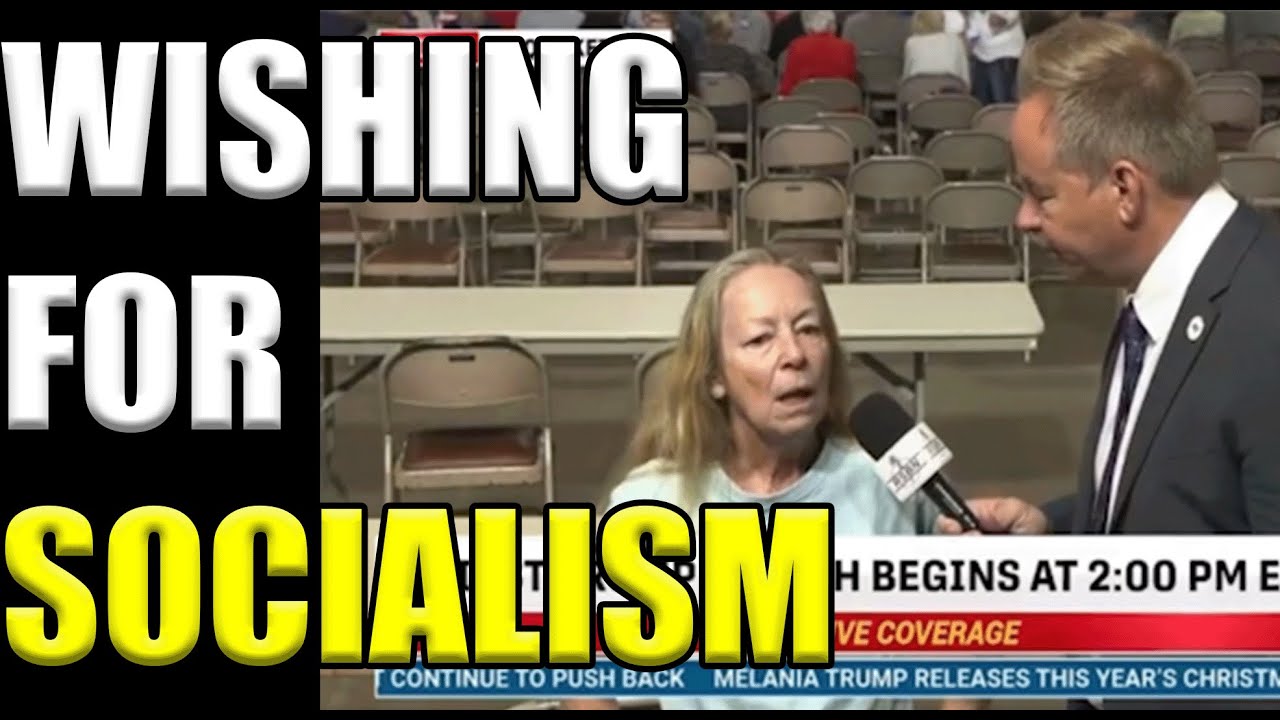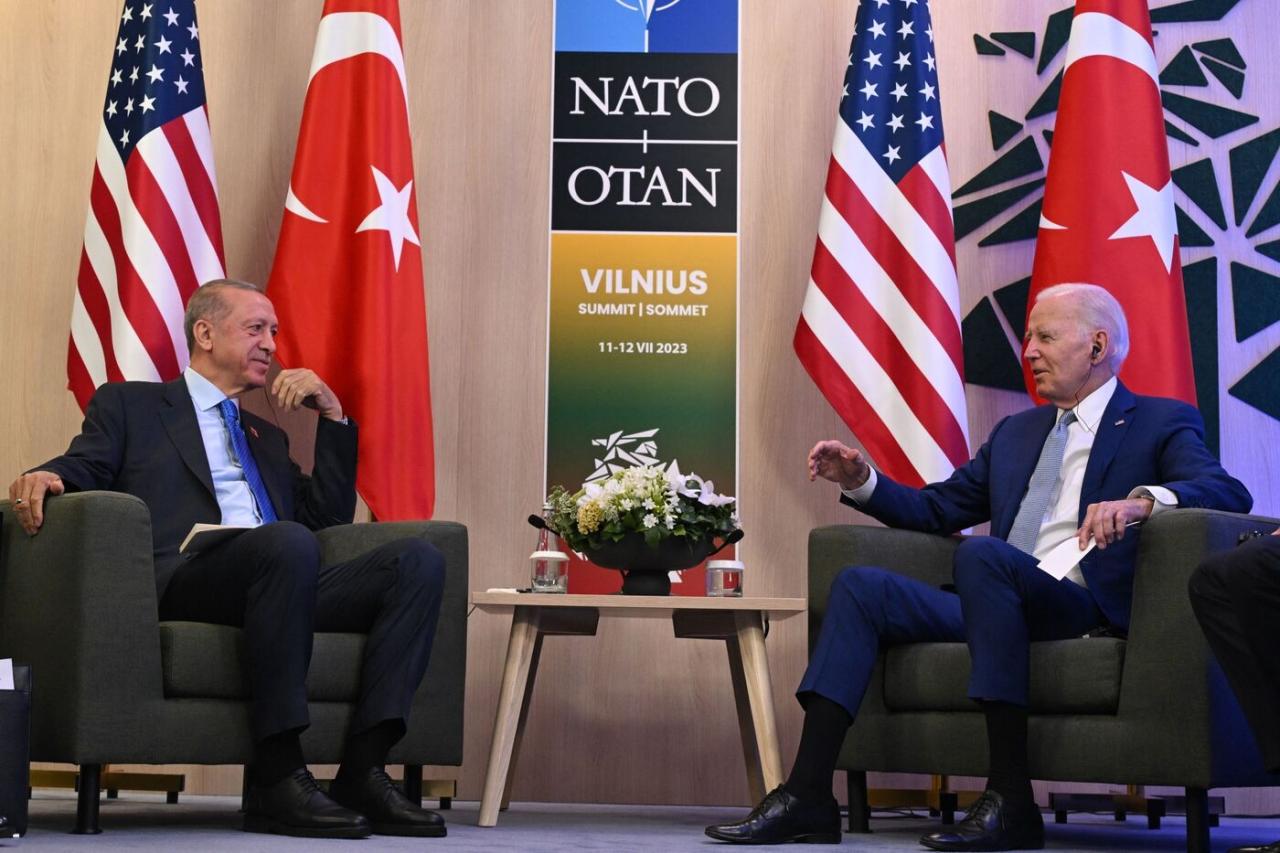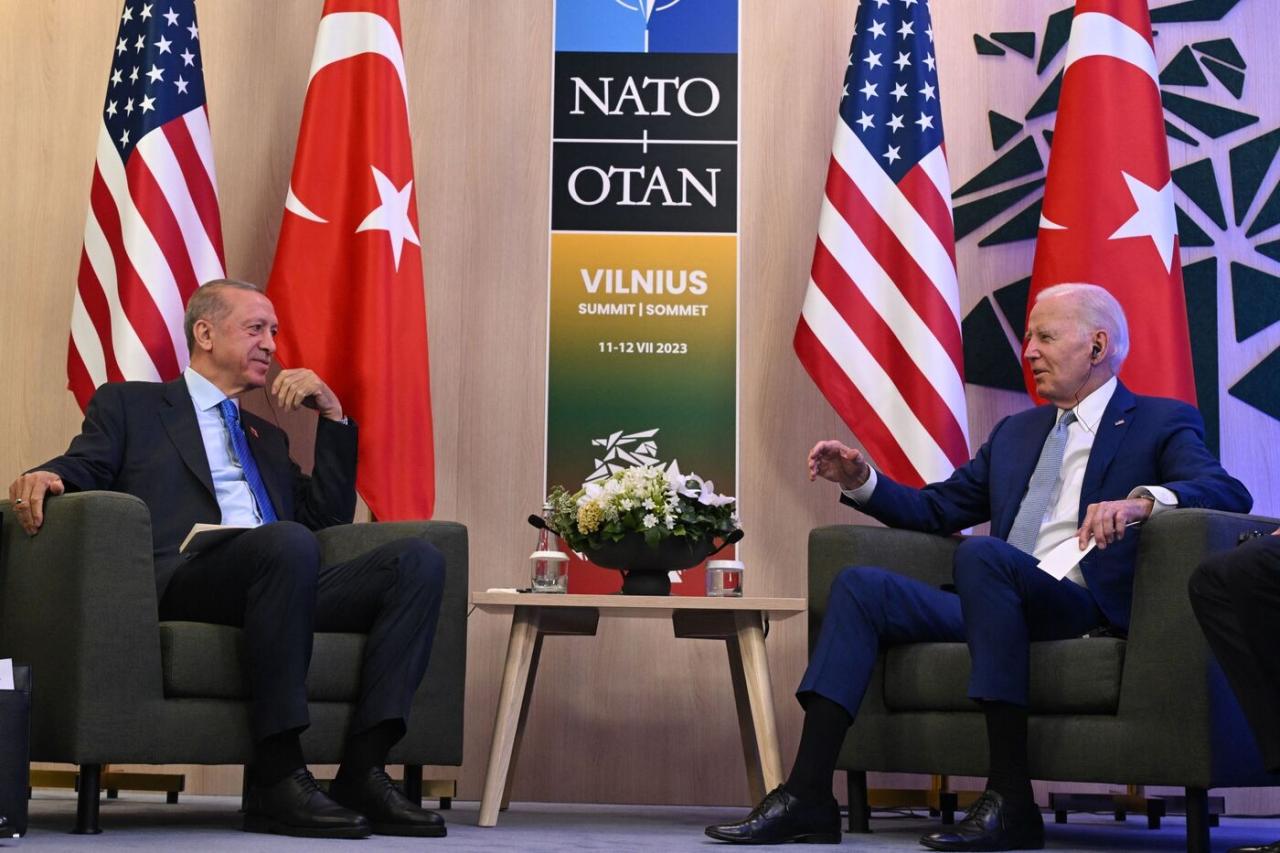Cracks appear in Maga world over foreign worker visas – a surprising rift is emerging within the MAGA movement regarding immigration policy. While some staunchly support restricting foreign worker visas, others are recognizing the economic realities and potential benefits. This article explores the complex interplay of economic concerns, cultural anxieties, and political maneuvering behind this developing schism.
We’ll delve into the economic arguments both for and against increased foreign worker visas, examining their impact on various sectors and demographic groups within the MAGA base. We’ll also explore the social and cultural perspectives, acknowledging concerns about national identity and cultural assimilation while highlighting successful community integration programs. Finally, we’ll dissect the political divisions within the movement, analyze the role of media and misinformation, and propose potential policy solutions to bridge the divide.
Economic Impacts of Foreign Worker Visas on MAGA Supporters

The debate surrounding foreign worker visas within the MAGA movement is complex, encompassing economic, social, and political dimensions. Understanding the economic arguments for and against increased visa issuance is crucial to navigating this multifaceted issue. This section will analyze the economic impacts of foreign worker visas on various sectors and demographic groups within the MAGA base, considering both potential benefits and drawbacks.
Economic Arguments For and Against Increased Foreign Worker Visas
Proponents of increased foreign worker visas often point to the potential for lower labor costs, stimulating economic growth, and filling labor shortages in key sectors. This is particularly relevant in industries like agriculture and construction, where there’s a significant demand for labor that domestic workers may not fully meet. Conversely, critics argue that an influx of foreign workers could depress wages for some domestic workers, increasing competition for jobs, particularly for low-skilled workers.
This concern is often voiced by those within the MAGA base who feel their economic interests are threatened.
Sectoral Impacts of Foreign Worker Visa Policies
Different sectors experience varying impacts. Agriculture heavily relies on foreign workers for seasonal labor, with potential economic losses if these visas are restricted. The construction industry also benefits from foreign labor, leading to quicker project completion and potentially lower housing costs. Conversely, the technology sector often attracts highly skilled foreign workers, contributing to innovation and economic growth, though this might lead to concerns about competition for high-skilled jobs.
Economic Benefits and Drawbacks of Foreign Worker Visas
Potential economic benefits include increased productivity, lower consumer prices due to reduced labor costs in certain sectors, and a boost in GDP from increased economic activity. However, potential drawbacks include wage stagnation or decline for some low-skilled workers, increased competition for limited jobs, and potential strains on social services if the influx of workers is not managed effectively. A balanced approach is needed to maximize benefits while mitigating potential negative consequences.
So, the MAGA world’s all in a tizzy about foreign worker visas, right? It’s a whole different kind of galaxy far, far away from the surprising connections you’ll find if you check out The Surprising Star Wars Connections & Cameos in Hook , which, honestly, is a way more interesting debate than this visa kerfuffle. Anyway, back to the MAGA drama – the internal fracturing over this issue is pretty wild.
Projected Economic Impacts of Different Foreign Worker Visa Policies
The following table provides a simplified projection of the economic impacts of different visa policies on various demographic groups within the MAGA base. Note that these are projections and actual impacts may vary depending on various economic and social factors.
| Visa Policy | High-Skilled Workers (MAGA Supporters) | Low-Skilled Workers (MAGA Supporters) | Farmers/Business Owners (MAGA Supporters) |
|---|---|---|---|
| Increased Visas | Potential increased competition for high-paying jobs | Potential wage depression | Access to cheaper labor, increased profits |
| Decreased Visas | Less competition, potentially higher wages | Reduced competition, potentially higher wages | Increased labor costs, reduced profits |
| Status Quo | Moderate competition | Moderate wage pressure | Moderate labor costs |
Social and Cultural Impacts of Foreign Worker Visas on MAGA Supporters
Beyond economic considerations, the social and cultural impacts of foreign worker visas on MAGA supporters are significant. Understanding the perspectives of MAGA supporters regarding cultural assimilation and potential tensions is crucial for fostering successful integration.
Perspectives of MAGA Supporters on Cultural Impact of Immigration
Many MAGA supporters express concerns about the potential impact of increased immigration on national identity and cultural assimilation. These concerns often stem from anxieties about changes to the social fabric of their communities and the preservation of traditional values. Open dialogue and addressing these concerns respectfully are essential.
So, the cracks are showing in the MAGA world’s stance on foreign worker visas – a real mess, right? It’s a distraction, though, kinda like when you’re trying to focus on the political fallout but get sidetracked by checking the Arsenal 1 – 0 Ipswich Town – Match Report – a much needed break from the intense debate.
Anyway, back to the visa issue, the internal conflicts within the MAGA camp are becoming increasingly difficult to ignore.
Potential Tensions and Strategies for Mitigation
Potential tensions between MAGA supporters and foreign workers can arise from cultural differences, language barriers, and competition for resources. Strategies for mitigating these tensions include promoting intercultural understanding through community events, language classes, and initiatives that facilitate communication and collaboration. Emphasis should be placed on mutual respect and shared values.
Examples of Successful Community Integration Programs
Successful integration programs often involve community-based initiatives that foster dialogue, cultural exchange, and mutual learning. Examples include mentorship programs pairing foreign workers with members of the local community, shared community projects that bring people together, and cultural festivals celebrating the diversity of the community. These programs aim to build bridges and create a sense of belonging for all residents.
Community Initiatives to Foster Understanding and Collaboration
- Organize community events showcasing the cultures of both foreign workers and MAGA supporters.
- Establish language exchange programs to facilitate communication.
- Create mentorship programs pairing foreign workers with local residents.
- Develop joint community projects that promote collaboration and shared goals.
- Support educational initiatives that promote intercultural understanding.
Political Divisions within the MAGA Movement Regarding Foreign Worker Visas
The MAGA movement itself is not monolithic in its views on foreign worker visas. Different factions hold varying positions, shaped by their economic interests, social values, and political priorities. Understanding these divisions is key to finding common ground.
Range of Opinions within the MAGA Movement, Cracks appear in Maga world over foreign worker visas

Opinions within the MAGA movement range from strong opposition to increased immigration to more nuanced positions that acknowledge the economic benefits of foreign workers in specific sectors. Some factions prioritize protecting the jobs of domestic workers, while others emphasize the economic contributions of immigrants. These differing perspectives often lead to internal disagreements and conflicting policy proposals.
Arguments Used by Different Factions
Those opposed to increased visas often highlight concerns about wage depression and potential strain on social services. Those who support increased visas often emphasize the economic benefits, particularly in sectors facing labor shortages. These arguments often reflect different economic priorities and interpretations of the impacts of immigration.
Approaches Taken by Different Political Leaders
Political leaders within the MAGA movement have taken varied approaches. Some have strongly opposed increased immigration, while others have adopted more pragmatic stances, acknowledging the economic needs of certain sectors. These differing approaches reflect the internal divisions within the movement and the complexities of the issue.
Differing Stances of Prominent Figures
| Figure | Stance on Foreign Worker Visas | Rationale | Proposed Solutions |
|---|---|---|---|
| [Prominent Figure 1] | [Stance – e.g., Strong Opposition] | [Rationale – e.g., Concerns about job displacement] | [Proposed Solutions – e.g., Stricter immigration enforcement] |
| [Prominent Figure 2] | [Stance – e.g., Conditional Support] | [Rationale – e.g., Acknowledges economic benefits in specific sectors] | [Proposed Solutions – e.g., Targeted visa programs] |
| [Prominent Figure 3] | [Stance – e.g., Neutral/Undecided] | [Rationale – e.g., Awaiting further data/analysis] | [Proposed Solutions – e.g., Further study and review] |
Role of Media and Misinformation in Shaping Perceptions
Media narratives and the spread of misinformation play a significant role in shaping public opinion, particularly within the MAGA community. Understanding how these narratives influence perceptions is crucial for promoting informed discussions.
Examples of Media Narratives Influencing Opinions
Certain media outlets have amplified narratives that portray foreign workers negatively, focusing on potential negative economic impacts and overlooking the contributions of immigrants. These narratives often lack nuance and fail to consider the broader economic and social context.
Role of Misinformation and Disinformation Campaigns
Disinformation campaigns, often spread through social media, have contributed to negative stereotypes and anxieties surrounding foreign workers. These campaigns often exaggerate the negative impacts of immigration and fail to provide a balanced perspective.
Strategies Used to Spread Misinformation
Misinformation is spread through various channels, including social media, biased news sources, and targeted online advertising. These strategies exploit existing biases and anxieties to create a narrative that resonates with specific segments of the population.
Counteracting the Spread of Misinformation
Fact-checking initiatives, media literacy programs, and promoting critical thinking skills are essential to counter the spread of misinformation. These efforts can help individuals evaluate information critically and make informed decisions.
Potential Solutions and Policy Recommendations
Addressing the concerns of MAGA supporters while meeting the needs of the economy requires a multifaceted approach. This section Artikels potential policy solutions and recommendations to bridge the divides.
Policy Solutions to Address Concerns
Potential policy solutions include targeted visa programs focused on addressing specific labor shortages, while also implementing robust worker protection measures to prevent wage depression. Investing in worker training and education programs can also help ensure that domestic workers are equipped to compete in a changing labor market. Strengthening border security measures could also address concerns about uncontrolled immigration.
Policy Recommendations to Bridge Divides

Specific policy recommendations include creating a pathway to citizenship for undocumented workers who meet certain criteria, implementing stricter enforcement of labor laws to protect both domestic and foreign workers, and increasing funding for community integration programs. These measures aim to address both economic needs and social concerns.
Potential Political Challenges
Implementing these recommendations will face significant political challenges. There will be opposition from those who strongly oppose immigration, and compromises will likely be needed to gain bipartisan support. The process will require careful consideration of various stakeholder interests and a commitment to finding common ground.
Potential Effects of Proposed Policy Solutions
A visual representation of the potential effects could be a chart showing the projected impacts of different policy solutions on various stakeholder groups (e.g., high-skilled workers, low-skilled workers, farmers, businesses). The chart would display potential changes in wages, employment rates, and economic growth for each group under different scenarios. For instance, a policy emphasizing worker training might show positive impacts for low-skilled workers but minimal impact on high-skilled workers.
A policy focused on stricter immigration enforcement might show a different set of outcomes. The chart would illustrate the trade-offs involved in different policy choices.
Closing Summary: Cracks Appear In Maga World Over Foreign Worker Visas
The debate surrounding foreign worker visas within the MAGA movement reveals a complex interplay of economic anxieties, cultural concerns, and political strategies. While some fear job displacement and cultural dilution, others recognize the economic contributions of foreign workers and the need for a more nuanced approach. Finding common ground requires addressing misinformation, fostering open dialogue, and implementing policies that balance economic needs with cultural preservation.
The future of this issue will depend on whether the movement can find a way to reconcile these competing interests.
Questions and Answers
What are the main economic arguments against increased foreign worker visas within the MAGA movement?
Common concerns include wage depression for low-skilled workers, increased competition for jobs, and potential strain on social services.
How are cultural concerns addressed in the context of foreign worker visas?
So, the MAGA world’s all in a tizzy about foreign worker visas, right? It’s a pretty wild contrast to, say, the drama happening elsewhere, like Margaret Qualley reveals the reason why shooting The Substance – which, honestly, sounds way more interesting than immigration debates. But back to the visas – the internal conflict is fascinating to watch unfold.
Addressing cultural concerns often involves promoting successful community integration programs, emphasizing language acquisition, and fostering mutual understanding between different cultural groups.
What role does misinformation play in shaping opinions on foreign worker visas within the MAGA movement?
Misinformation campaigns often exaggerate the negative impacts of foreign workers, creating fear and distrust. Fact-checking and media literacy are crucial to counteract this.
Are there any successful examples of community integration programs involving foreign workers and MAGA-supporting communities?
Several programs focusing on language training, job skills development, and cultural exchange have shown success in fostering positive relationships between foreign workers and local communities.
